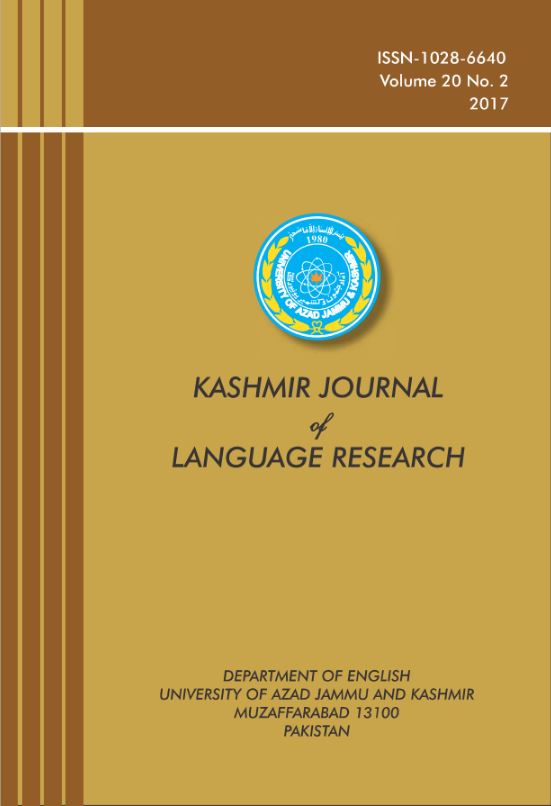Hemingway’s Code Hero in Krishan Chandar’s “The Soldier”
An Intertextual Analysis
Keywords:
Postmodernism, intertextuality, World War-II, code-hero, symbolsAbstract
Often considered as one of the constituent dimensions of postmodern texts, intertextuality is a postmodernism concept that refers to the reciprocal kinship between certain texts. This paper intends to highlight the way echoes of Earnest Hemingway’s code hero can be felt while reading Indian born Pakistani writer Krishan Chandar’s “The Soldier”. Krishan Chander (23 November 1914 – 8 March 1977) was an Urdu/Hindi writer of short stories and novels. He also worked on English. He was a prolific writer, penning over 20 novels, 30 collections of short stories and scores of radio plays in Urdu and later, after partition of the country, took to writing mainly in Hindi. He also wrote screen-plays for Bollywood movies to supplement his meagre income as an author of satirical stories. Krishan Chander's novels (including the classic: Ek Gadhe Ki Sarguzasht, trans. Autobiography of a Donkey) have been translated into over 16 Indian languages and some foreign languages, including English. In the postmodern era where no text is considered original and it is believed that all texts are in fact an imitation of some previous text, it is important to see that writers belonging to so different and diverse geographical regions are influenced by each other’s work and they incorporate this influence in their work to subvert war ideology. In this case, Krishan who wanted to articulate his hatred about the 2nd World War has taken help from his predecessor Hemingway who perpetuated the same ideology of hatred against World Wars in his novels and short stories.

Downloads
Published
Issue
Section
License
Copyright (c) 2022 Kashmir Journal of Language Research

This work is licensed under a Creative Commons Attribution 4.0 International License.




